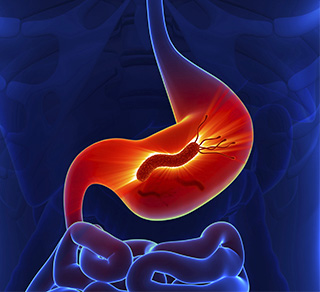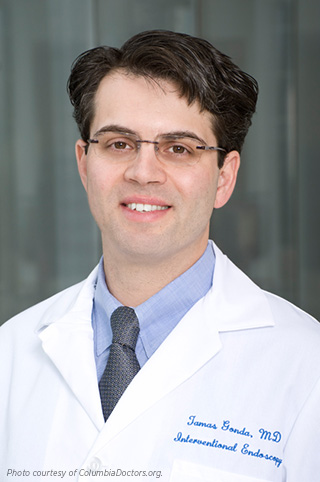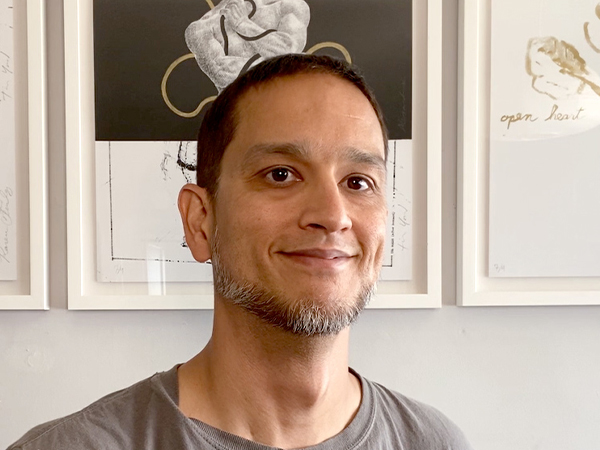Dr. Tamas Gonda: Innovating New Approaches to Cancer Prevention
A Landon Foundation-AACR INNOVATOR grantee is researching new ways to circumvent the development of stomach cancer.

In 2015, an estimated 24,590 people in the United States will be diagnosed with stomach cancer and 10,720 are expected to die of the disease, according to federal statistics.
The rate of stomach cancer, also called gastric cancer, has fallen since the 1930s when it was the leading cause of cancer death in this country. The decline in deaths from this form of cancer has been attributed to the increased use of antibiotics, which kill the gut bacterium Helicobacter pylori, the primary known cause of stomach cancer. Other factors in that sharp decline may include improvements in sanitation and the widespread use of refrigeration.
Despite the improvement, the five-year survival rate for those diagnosed with stomach cancer is just 29.3 percent, according to the National Cancer Institute’s Surveillance, Epidemiology, and End Results (SEER) Program.
It is well-known that changes in lifestyle, including diet and exercise habits, can lower your cancer risk. Yet while there has been much attention surrounding cancer prevention, much remains unknown, especially regarding how best to implement solutions to prevent disease.
Scientists continue to study the mechanisms governing cancer development, often with the hope that understanding how cancer arises can lead to the discovery of new approaches to prevent disease onset. One such clinician-scientist is Tamas Gonda, MD, an assistant professor in the Department of Medicine at Columbia University Medical Center.
Dr. Gonda specializes in gastroenterology, with a clinical practice focused on endoscopic diagnosis and treatment of several malignancies.

“It is a unique field because on a daily basis I diagnose conditions that carry a significant risk of cancer,” said Dr. Gonda. “It is rewarding to have the opportunity to be the person who occasionally can remove precancerous growths, but it is very frustrating and challenging to face the inevitable question that follows these interventions: How do I prevent these precancerous lesions from developing again?”
To complement his clinical practice, Dr. Gonda also heads a research program centered on this very question, and in 2014, he was awarded the Landon Foundation-AACR INNOVATOR Award for Cancer Prevention Research, a research grant funded through the AACR’s long-standing partnership with the Kirk A. and Dorothy P. Landon Foundation*, to fund this work.
“The eradication of Helicobacter pylori infection has had an enormous impact on the prevention of cancer,” Dr. Gonda said. “Interestingly, it has not wiped out the disease to the degree that some may have expected. My research is focused on understanding other, equally nontoxic interventions and their role in the prevention of precancerous lesions or the reversal of progression toward gastric cancer.”
His project examines how epigenetic changes (stable, long-term alterations to DNA that do not involve a change in the actual nucleotide sequence) can impact the tumor microenvironment, with a particular focus on gastric cancer.
Dr. Gonda is grateful for the funding provided by the Landon Foundation-AACR INNOVATOR Award, considering it an important resource that has allowed him to define his research program toward chemoprevention.
“As a young investigator, funding is probably the greatest challenge – and despite the public health importance of chemoprevention, this area remains harder to secure funding than in many other areas of cancer research,” he said. “Successful prevention strategies almost certainly will have a greater impact on cancer mortality and certainly incidence than any treatment might.”
This article was adapted with permission from a post on the AACR’s official blog, CANCER RESEARCH Catalyst.
*The AACR fondly remembers R. Kirk Landon, the president of the Kirk A. and Dorothy P. Landon Foundation, who passed away March 24, 2015. Over the past 13 years, the Kirk A. and Dorothy P. Landon Foundation has provided a total of $5.1 million in funding to cancer research through the AACR. This research funding provided by the Landon Foundation was intended to heighten the attention of scientists and members of the general public to landmark scientific achievements in the continuing effort to prevent and cure cancer, and to stimulate the development of new thinking and novel concepts in both basic and translational research. We are deeply indebted to Kirk and the Foundation for this immense generosity, and we send our heartfelt condolences to the Landon family.




